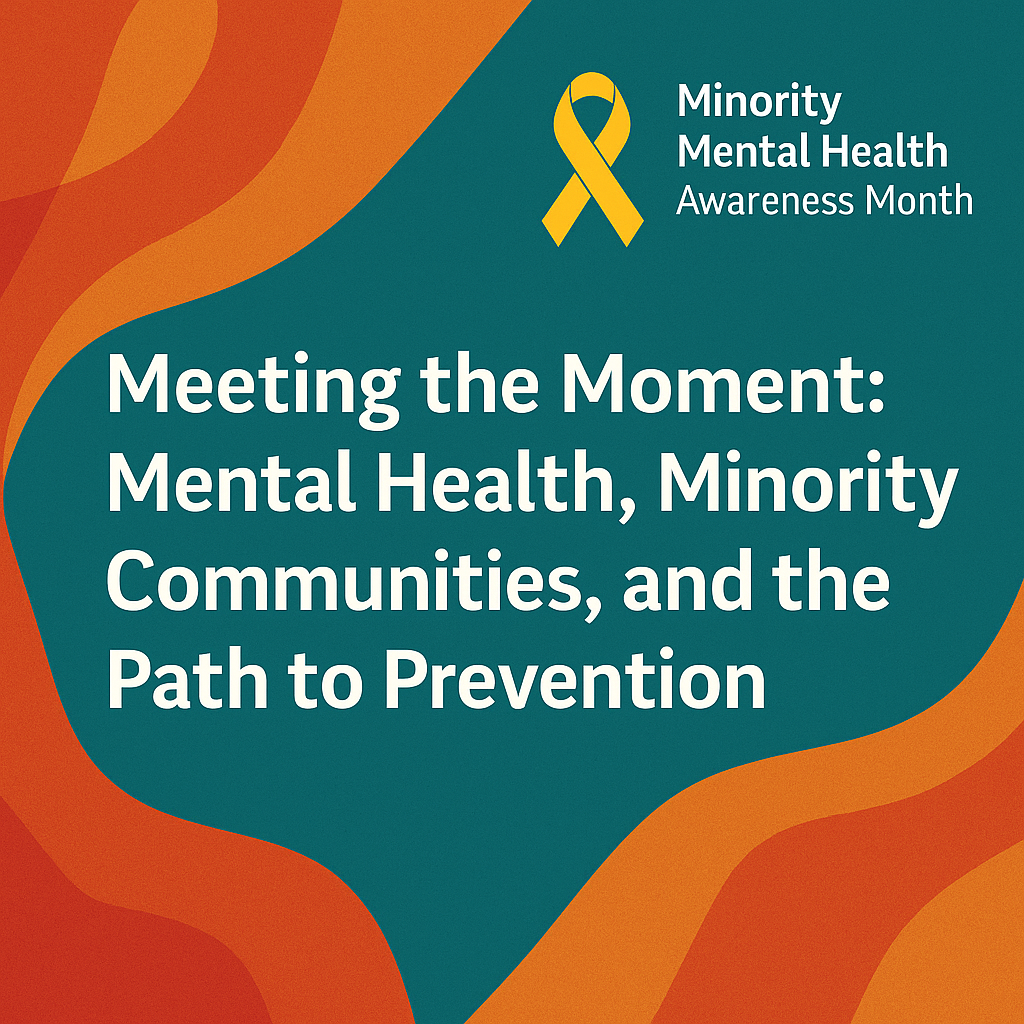July is National Minority Mental Health Awareness Month; a time to raise awareness about the unique mental health challenges experienced by communities of color and to advocate for equitable, culturally competent care. It also honors the legacy of Bebe Moore Campbell, a tireless advocate and co-founder of the National Alliance on Mental Illness (NAMI), who fought to ensure that people of all backgrounds had access to quality mental health services. At CASH, this month is deeply personal. The women we serve, many of whom are Black, Latina, Native, and multiracial, carry not just the trauma of exploitation, but the weight of systems that failed them long before they walked through our doors.
Black women, in particular, are overrepresented in our programs — not because they are more prone to exploitation, but because systemic racism, poverty, and gender-based violence have long conspired to create conditions that leave them most vulnerable. Nearly half of the participants in our Comprehensive Survivor Services (CSS) programs are African American. Many have survived childhood abuse, unstable housing, school pushout, and over-policing. These intersecting challenges often go unaddressed for years, resulting in untreated trauma, mental health issues, and a lack of trust in systems that have historically harmed rather than helped. When women enter CASH, they are often navigating not only exploitation, but years of compounded neglect by the institutions meant to protect them.
That’s why culturally responsive, survivor-led care isn’t just a best practice; it’s a lifeline. Our peer case managers understand the realities of “the life” because they’ve lived it. They don’t ask survivors to explain their pain or justify their survival strategies. Instead, they listen without judgment, affirm survivors’ experiences, and walk alongside them as they build safety and stability on their own terms. This model of care breaks down barriers that traditional services often reinforce, allowing survivors to engage more fully, build trust, and begin the slow, courageous work of healing. Cultural competence here isn’t a training; it’s a relationship built on lived experience, community knowledge, and mutual respect.
We also recognize that healing doesn’t happen in isolation; it happens in community. That’s why CASH works closely with trusted, culturally grounded partners like Soul Space and La Familia Counseling Center. These organizations provide mental health support that reflects the values, language, and lived realities of the people they serve. From family-focused counseling to culturally rooted healing practices, they offer safe spaces where our clients feel seen and supported. When a survivor is ready to engage in therapy, rebuild family connections, or address the mental health impacts of trauma, these partners are often the bridge. Together, we form a continuum of care that honors the full humanity of those we serve.
The CSS evaluation conducted with the Institute for Social Research makes it clear: meaningful progress doesn’t come from isolated services — it comes from sustained, human-centered support. Most participants entered the program with urgent, overlapping needs: no income, unstable housing, untreated mental health issues, and little or no support network. And yet, by the end of the evaluation period, between 51% and 68% of participants saw measurable improvement in key areas like safety, housing, behavioral health, and parenting. These gains were not the result of mandates or checklists. They were possible because CASH case managers treated each woman with dignity, honored her choices, and remained present even when progress was nonlinear.
When survivors were believed, not blamed — when they were invited to set their own goals, rather than forced into one-size-fits-all programs — they stayed. They returned after relapses. They asked for help. They took steps forward, even after setbacks. They believed they were worthy of change because someone else believed it first. As one participant shared, “I never thought I was going to stop being on the streets… and now I did a completely 360. If you want to change your life, they will help you change your life.”
This month is not just about raising awareness; it’s about removing barriers. It’s about understanding that to truly protect children from trafficking and support adult survivors, we must also address the socioeconomic factors that made them vulnerable in the first place: racism, poverty, housing instability, untreated trauma, and lack of access to care.
It is not enough to ask survivors to be resilient. We must create systems worthy of their resilience.
At CASH, we remain committed to that vision — not just during National Minority Mental Health Awareness Month, but every day. If you’d like to support our work, share this blog, donate, or learn how to advocate for equitable mental health care and anti-trafficking legislation in your community. Together, we can build a world where healing isn’t a privilege; it’s a right.
To read more about National Minority Mental Health Awareness Month, click here.

